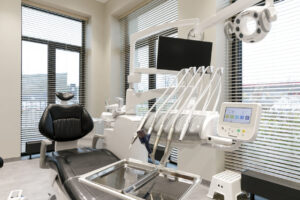Advice on how to prepare properly for treatment using sedation or general anaesthesia:
01 Patient must inform the doctor of existing diseases
Planuojant odontologinę procedūrą sedacijoje ar su bendrine nejautra, pacientas privalo gydytoją informuoti apie esamas ligas, vartojamus vaistus, turimas alergijas, buvusias alergines reakcijas, traumas, operacijas. Taip pat turi su savimi turėti šeimos gydytojo išrašą, kad galima taikyti bendrinę nejautrą.
02 Patient must not have an acute illness before the planned procedure
Fever, runny nose, cough, viral infections or other illnesses can cause serious complications. It is recommended that at least 2 weeks have elapsed since the acute illness.
 03 You must not eat for 6 hours prior to the procedure.
03 You must not eat for 6 hours prior to the procedure.
Coffee, tea, milk or milk products must not be consumed at least 6 hours before the procedure. Clear liquids (transparent in the glass, e.g. plain or non-carbonated mineral water) can be consumed for a longer period of time, but water must not be consumed 2 hours before the procedure. Chewing gum and sucking sweets are also not allowed. Failure to follow these instructions during anaesthesia can lead to life-threatening complications such as regurgitation of stomach contents and their entry into the airways.
04 Reminder: take medicines you take regularly, e.g. for blood pressure or diabetes mellitus
However, you are allowed to take them with a small sip of water before surgery only after consulting your doctor. Particular care should be taken with blood thinners, which have an exact time limit for discontinuation. For some this is 1-2 days, for others 5-7 days before surgery. Your GP and/or your doctor should give you clear instructions on this.
05 Arrive well rested, preferably at least 30 minutes before
Please arrive well rested, preferably at least 30 minutes before the procedure to allow the anaesthetist to review and assess your test results.
06 Do not drive for 24 hours after anaesthesia.
You must not drive for 24 hours after anaesthesia, and it is not advisable to use public transport, so make sure you arrive with an accompanying adult.
Required tests
The following tests should be carried out 10-14 days before the procedure:
- Complete blood count;
- Blood clotting test (PA, ADTL);
- ECG;
- Na, K, Urea, creatinine, glucose;
- If you have certain medical conditions, other tests may be necessary (your doctor will inform you about this).
You can have the necessary tests done either in your clinic or in a private clinic.
